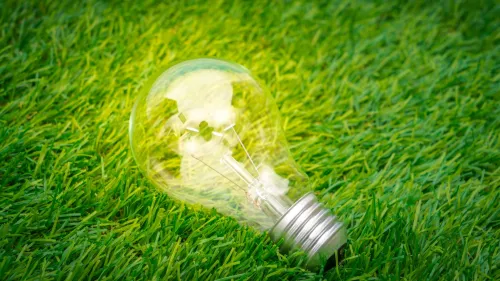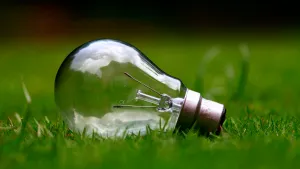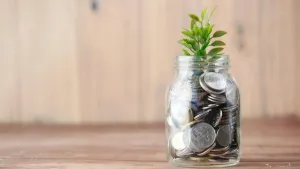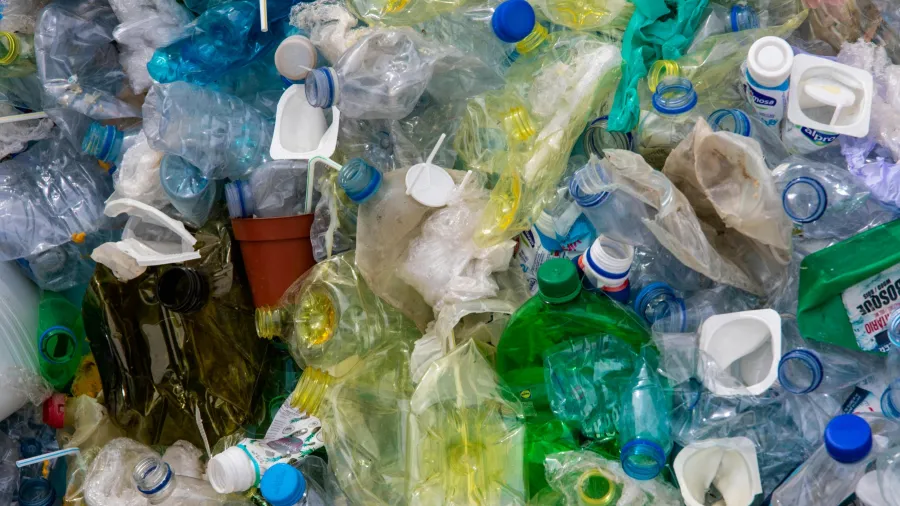
Only about 20% of EU's plastic waste is recycled
Packaging sector accounts for nearly half of generated waste.
Just roughly a fifth of the plastic waste generated annually in the European Union (EU) is recycled, according to the European Commission's Joint Research Centre (JRC).
In a new JRC report, it was noted that 42.5 million tonnes of plastic waste was generated by the EU in 2022, of which around 80% was either landfilled or incinerated.
"Despite a five-fold increase in the EU's recycling capacity since 1996, only about 20% of its plastic waste is recycled," the JRC said in an update announcing the release of its study.
"The packaging sector alone accounts for nearly half of the total waste generated. However, thanks to well-established collection systems, almost 35% of this waste is sent for recycling.
"This is a relatively good rate: other types of waste that are collected as mixed fraction and not properly sorted are usually incinerated or landfilled. This is the case, for example, with textile waste, of which only 1.5% is sent for recycling."
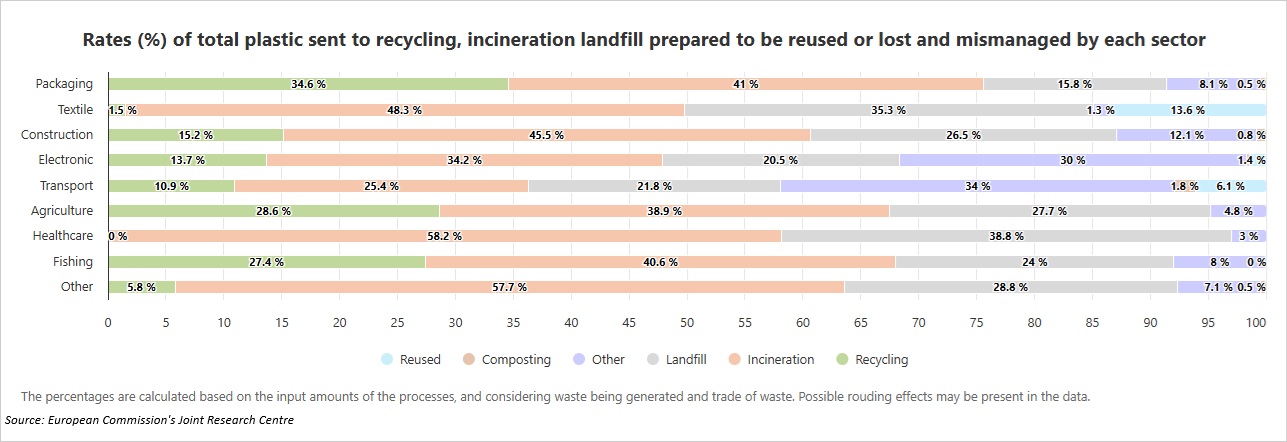
Notably, nearly 6% of the EU's plastics consumption is lost in the environment.
The JRC highlighted: "Almost 45% of these losses took place during the consumption stage, especially due to packaging littering, tyre wear, or textiles washing.
"38% of these losses were due to plastic waste mismanagement or losses during incineration and landfilling of plastic waste. Most of the plastic lost to the environment goes into soil, but also into water (0.7 million tonnes)."
With an average of 140 kg per person, the EU consumed 62.8 million tonnes of plastic in 2022. During that period, plastic production and consumption in the region generated the equivalent of more than 252 million tonnes of carbon emissions.
"In the future, accelerating the switch to production from other sources than virgin fossil, including plastic waste and biomass, would be a very effective way to promote recycling and reduce environmental impacts, including carbon emissions," the JRC stated.
"Bio-based plastics are still used in very low volumes overall, but becoming more common in packaging, which is the largest sector of plastics use. The uptake of these eco-friendlier materials will help cut down on the emissions linked to fossil-based plastic production."
Plastic losses to the environment, meanwhile, can be reduced by improving plastic waste collection and sorting.
